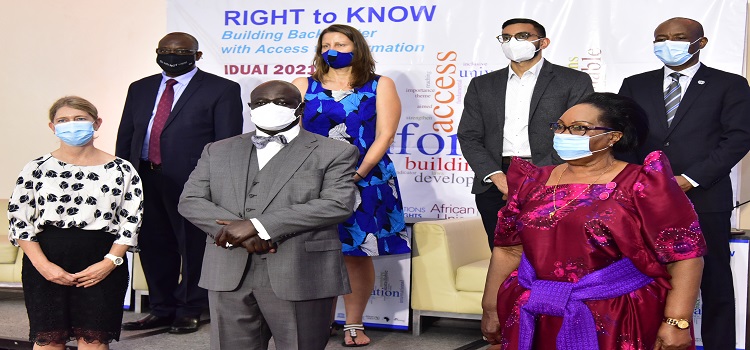The overall purpose of access to information is how it transforms lives of ordinary people and I challenge Civil Society Organisations to carry out a post legislative scrutiny on how the Access to Information Act has impacted on rural communities who make up majority of the population, Speaker Jacob Oulanyah has said.
Oulanyah made this call while speaking at a high level dialogue to commemorate the International Day for Universal Access to Information at the Kampala Serena Hotel on 28 September 2021. This year’s celebrations are being celebrated under the theme, “The Right to Know: Building Back Better with Access to Information”.
The Speaker asked the participants who included representatives from the United Nations and African Union to refocus the discussion on access to information to how it supports transformational programmes in communities that are less developed.
“The Access to Information Act was enacted in 2005 and the question is, since its enactment, of what benefit has it been to the ordinary person,” he said.
He added that the use of social media benefits a few elite while majority who cannot access such platforms are left behind. He made reference to the recent addressees by President Museveni on the Covid-19 pandemic where he said that majority of people were only able to access such information through the broadcast media.
“They say that information is a public good and it is true, but to whom. Is it just a high sounding rhetoric or does it come to action to help people who need this information to change their situation and status. If we can’t change their lives, then we have no purpose saying what we are saying so eloquently in these big meetings,” Oulanyah said.
The Executive Director, Africa Freedom of Information, Gilbert Sendugwa said that unequal access to information is undermining efforts of governments and the international community to address the widening inequality.
“We have learnt from our work in Uganda that when government agencies disclose information, they receive great feedback from civil society and other data users which helps these agencies to perform better,” he said.
He acknowledged commitment from international organisations to support African governments and CSO campaigns towards adoption and effective implementation of access to information laws.
“29 African countries including five in Eastern African are yet to adopt these laws while 26 countries including seven in Eastern Africa that have them including Uganda need to scale up their implementation,” Sendugwa said.
Do you have a story in your community or an opinion to share with us: Email us at editorial@watchdoguganda.com













